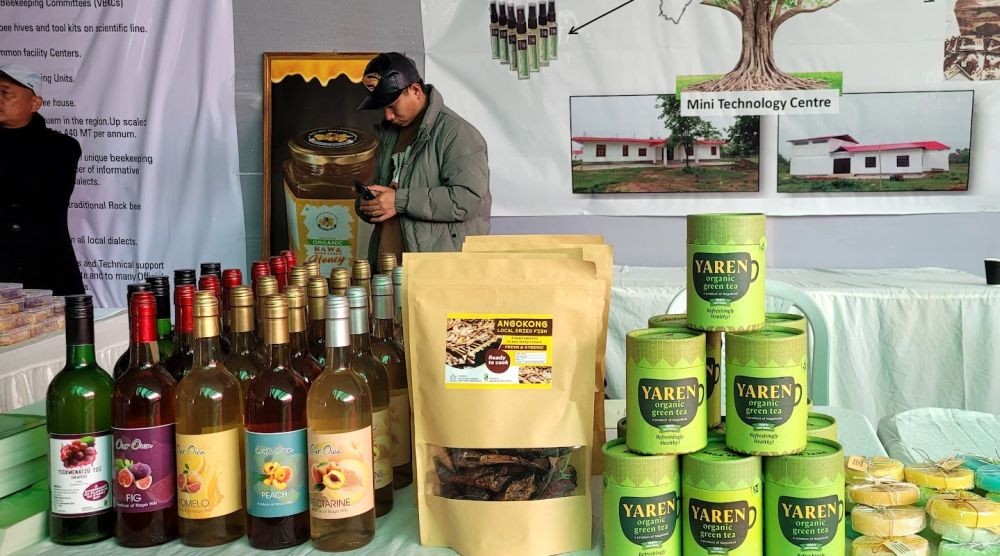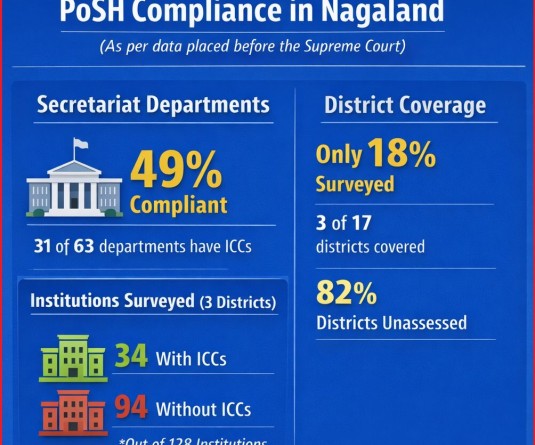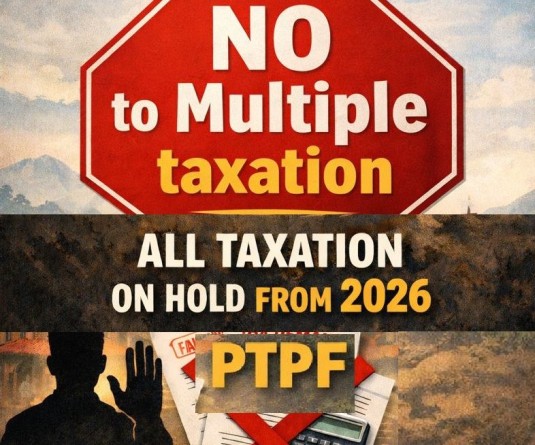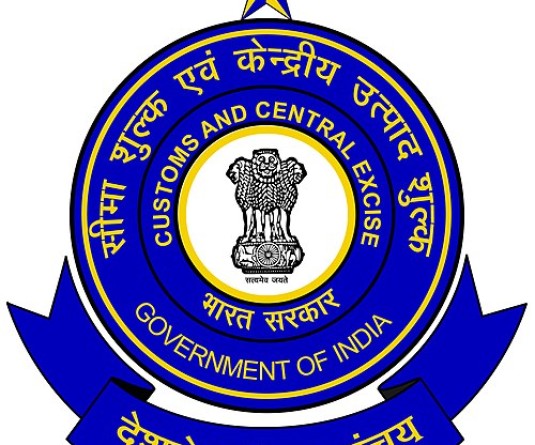Some food processing products from Nagaland. (Morung File Photo)

Our Correspondent
Kohima | March 13
The Nagaland Food Processing Industries Policy (NFPIP) under Department of Industries & Commerce, Nagaland was tabled in the recently concluded 6th session of the 14th Nagaland Legislative Assembly (NLA) in Kohima.
In recent years, food processing industry has emerged as one of the important segments in the growth of the country’s socio-economic context, the preamble of the NFPIP stated adding “Being the bridge between the two economic pillars, i.e. agriculture and industry, food processing industry plays a pivotal role in shaping and determining the value chain system by delivering plug in and on functions wherever viability gap arises.”
For a State like Nagaland, considering the vast untapped potential of resources based on production of agriculture, horticulture, livestock, manpower availability and organic farming practices; the food processing sector occupies a lead role to build up and bring about changes in the overall scenario of the State’s socio-economic development with inclusive growth and food security.
With this view, the Nagaland Food Processing Industries Policy attempts to give a momentum to the budding food processing industries in the State with facilitation and support from the Government through incentives, capacity building, technical/administrative assistance, infrastructural facilities and a wide range of support and services encompassing all the food processing related activities on need basis, stated the preamble of the Policy.
With an aim to accelerate the growth of food processing industries in the State, the policy will strive to encourage prospective entrepreneurs, progressive farmer and investors to venture into food production business by complying with the best practices and standards in order to deliver safe and high quality end products for human consumption and further target to achieve quality products for export markets.
Vision and objectives
The policy envisions propelling the overall development and growth of food processing in the State by setting up strong infrastructural facilities throughout the value chain and bringing about more participation into the food processing industry sector thereby reducing wastage of produce, bringing remunerative returns to the farmers, ensuring food security and creating more employment avenues towards achieving a sustainable economy.
The objectives of the policy is to strengthen appropriate infrastructural facilities and logistic supports in the line of food processing backed with a strong value chain system, to increase the level of post harvest surplus and reduce wastage of farm produce in the sectors of agriculture, horticulture, dairy, livestock and aquatic resources, to promote value addition and minimal processing of fresh produces at the farm gate level, to enhance the shelf-life of locally produced perishable food crops so as to make it available during off seasons and also retain its quality during transit periods.
It also aims to ensure food security and make easy availability of safe, hygienic and quality processed food products to the consumers at competitive prices, to increase the level of demand-driven, both semi-processed and processed, food products for self sufficiency in the domestic market and further target for export markets, to facilitate linkages from farm to processing units till the market and find buyers, to encourage export of food products with special focus on organic and indigenous food produces, to support cluster projects and encourage prospective entrepreneurs and progressive farmers to take up food processing activities, to streamline the existing food processing units in the unorganized sector, to bring about capacity building and skilling of trained work force in the sector, to enable remunerative returns to the farmers, entrepreneurial avenues and generate employment both in rural and urban areas, to encourage research and development works, to bring equitable growth and development among all sections of the society, to create an inviting and excellent ambience for the development and growth of food processing industries in the State and attract more investments and to create a dedicated facilitation point for providing necessary assistance, service and support to the entrepreneurs, investors and stakeholders.
Strategy
• To effectively carry out the objectives, the following action points shall act as the impetus in the development and strengthening of the food processing sector in the State
• Development of a sound value chain system by establishment of collection centers (CCs) & primary processing centers (PPCs) at catchment areas, Central Processing Centre (CPC), integrated pack house, integrated cold chain, warehousing and infusion of logistic systems equipped with refrigerated & chilling facilities
• Development of infrastructural facilities for establishment of new food processing units and up-gradation of existing units through incentives
• Creation of a robust backward and forward linkage to ensure consistent supply of raw materials and marketing of finished products for both domestic and export market
• Development of incubation centers and food testing labs for product development, processing of products on rental basis and sample tests
• Ensure manufacturing of safe and hygienic quality food products for human consumption by enforcing mandatory regulatory norms laid down by FSSAI and encourage food processors to acquire and follow internationally accepted certifications and practices
• Support promotional activities through branding, exhibition/fairs, B2B, buyers-sellers meet and investment summits
• Promotion of cluster production by creation of common processing centers in identified zones where availability of potential raw materials is high
• Utilization of existing food parks, industrial growth centers and industrial zones in the State to its full potential by encouraging entrepreneurs to set up their units in these facilities
• Make special arrangements for the unorganized sectors to access efficient technology, follow standard practices/norms and support them to scale up their production with quality end products through incentives and sensitization methods
• Capacity building on the prospects, process and management of food processing industries through sensitization, awareness creation, EDPs and skill development trainings among the various unemployed youths, SHGs, women groups, progressive farmers and prospective entrepreneurs
• Development of skill and training centers in all the Districts to produce essential workforce in the line of food processing
• Support start-ups and research & development activities for new/innovative food products and traditional knowledge system/methods of food processing through incentives
• Provide special incentives for women entrepreneurs and entrepreneurs in rural areas
• Simplification of various regulatory norms and procedures to attract more investors
• Provide various incentive packages of subsidies, fiscal incentives and tax exemptions of various charges and duties
• Create a dedicated FPI Directorate by engaging professionals and qualified manpower to support and assist in the implementation of all the State/Central Government schemes, plans and programmes related to food processing activities
• Offer assistance and support to entrepreneurs in availing various Central schemes and in getting credits from Banks/Financial Institutions
• Facilitate requisite knowledge, data, information, services and support systems in coordination with allied Departments.






